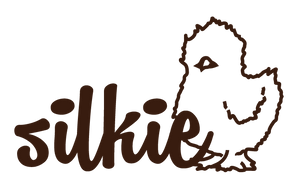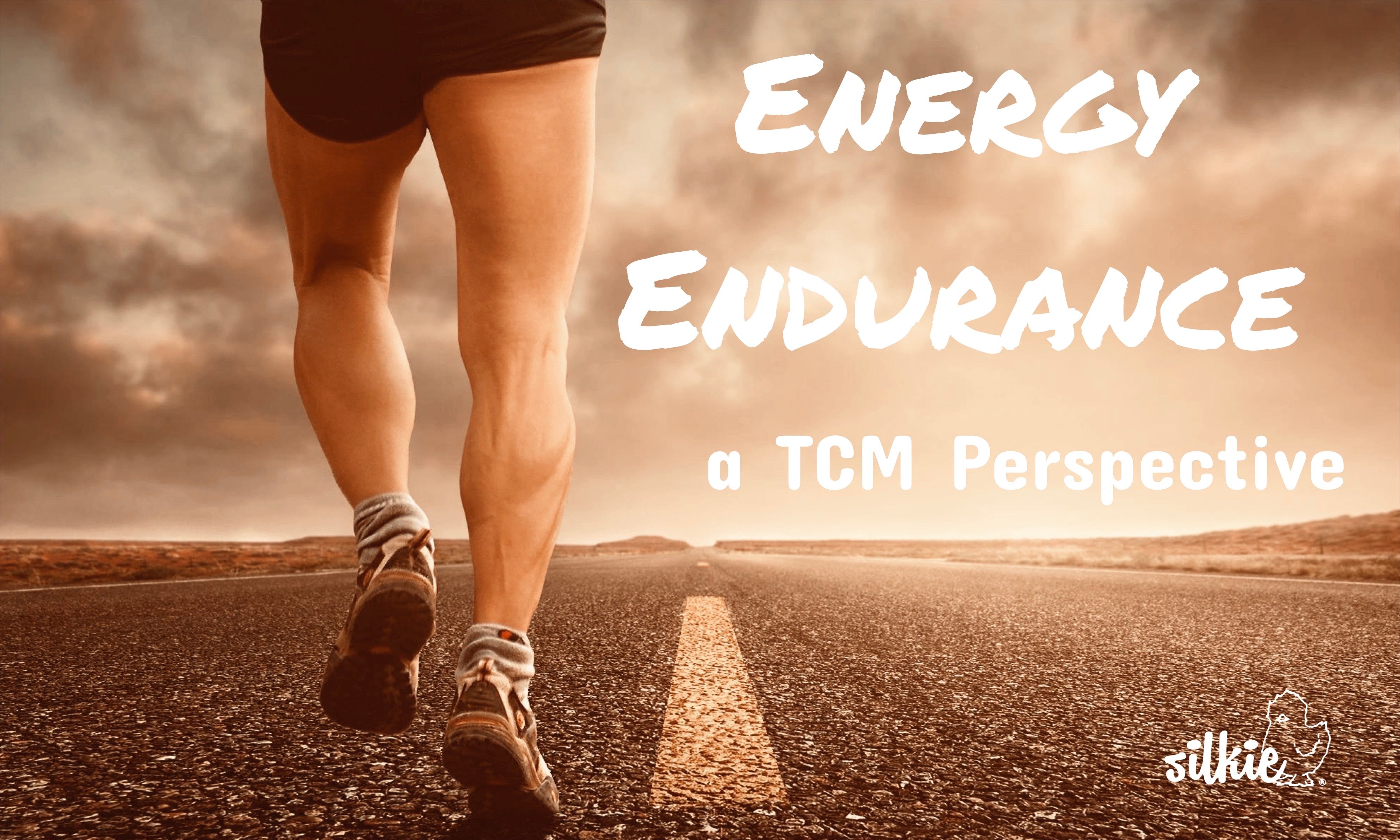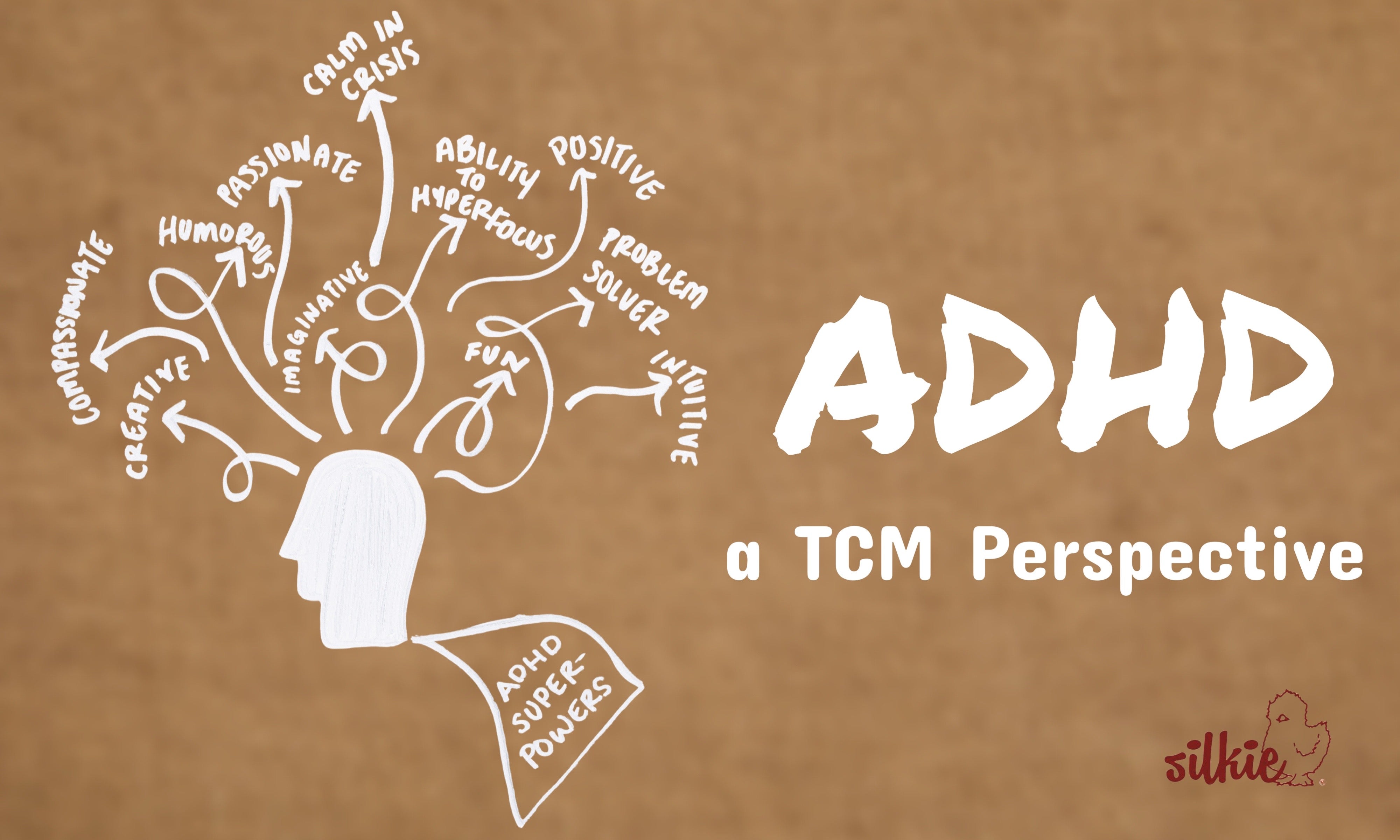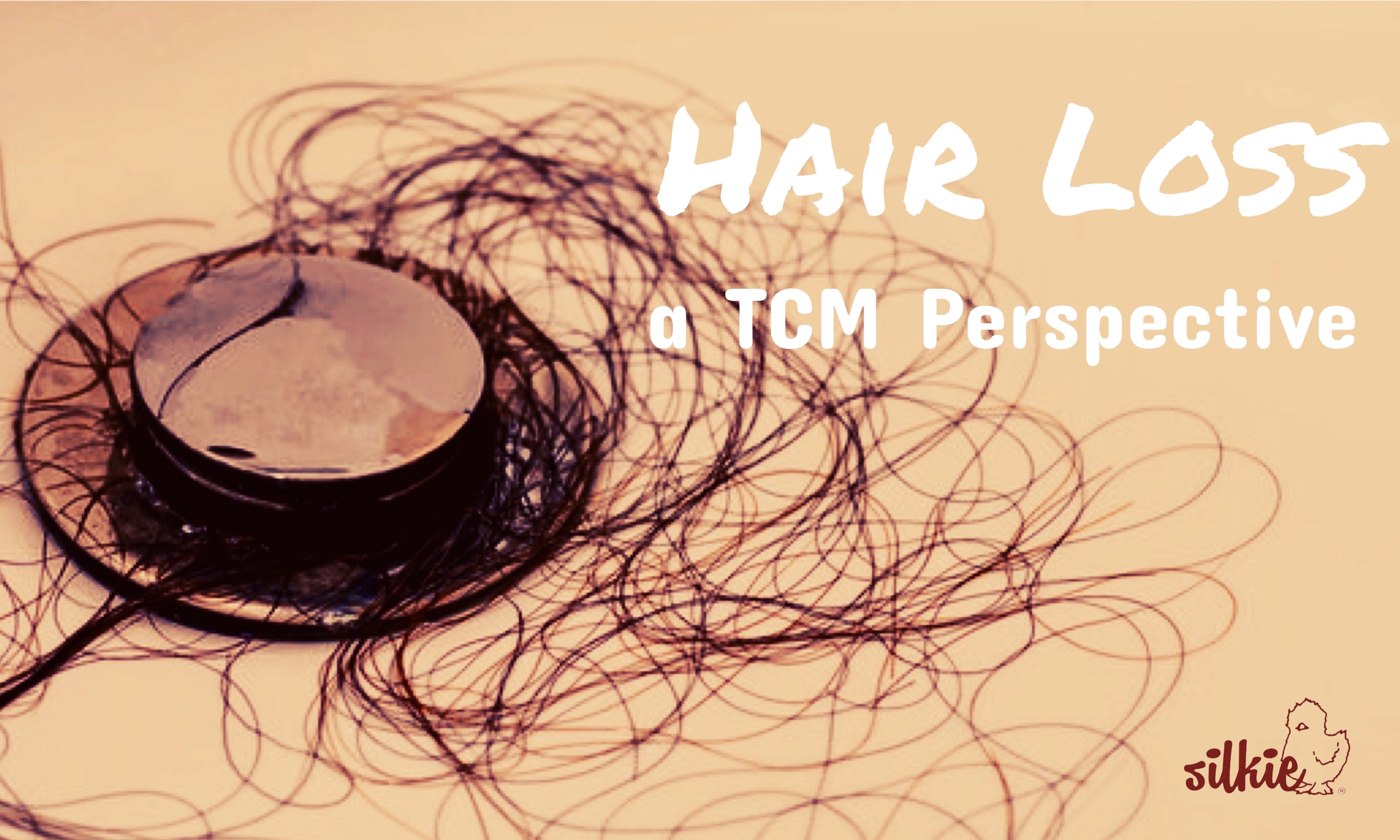5 Types of Insomnia and How Chinese Herbs Can Help
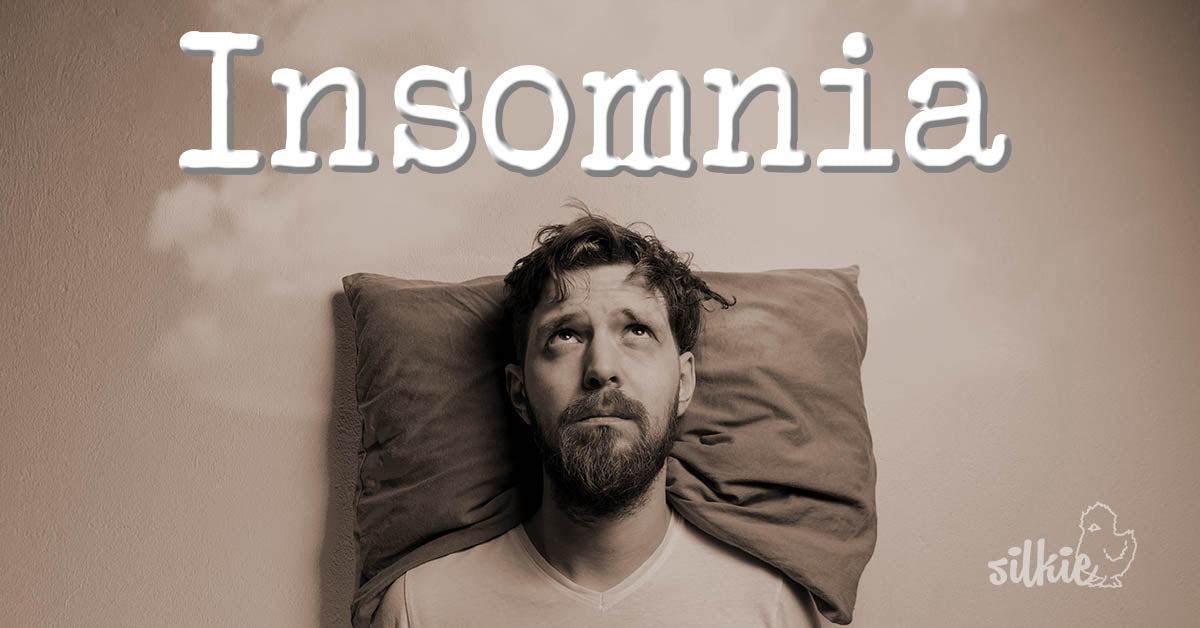
By Patricia Nguyen, Doctor of Acupuncture and Chinese Medicine, and herbal consultant at Silkie Herbs
If you have a hard time falling asleep, staying asleep, or you wake up tired, then you have insomnia. There are actually five types of insomnia. To understand the different causes of insomnia, you have to understand the energetics of nighttime sleep compared to the energetics of daytime activity.
How Traditional Chinese Medicine Views Insomnia
Good sleep is essential for getting well and staying well. What characterizes good sleep? In Traditional Chinese Medicine (TCM), the best sleep is falling asleep quickly, staying immobilized in deep sleep from 11pm to 7am, and waking up refreshed.
The energetics of sleep and activity depend on two deeply intertwined forces called Blood and Yang Qi. Most people are familiar with Blood, but the concept of Yang Qi is more elusive as there is no equivalent concept in English. In this article, I am simplifying the concept of Yang Qi to functional energy, because all daily actions, including the process of thinking, require functional energy.
The relationship between Blood and Yang Qi can be illustrated with a cup of steaming hot water. Blood is the liquid water and Yang Qi is the hot steam, still water, but moving in the form of a gas. In physiology, Yang Qi is the functional, moving energy behind Blood.
As I sit here to type this article, Blood has to flow to my brain, to my eyes, and to my fingers to nourish them. From the Blood, Yang Qi is generated to activate and coordinate different body parts so that I can type and cohesively transfer my thoughts into letters, words, and paragraphs. As you read and interpret this, the same process is happening in you.
During the day, Blood and Yang Qi circulate throughout the entire body and flow more to certain areas as needed. For example, when you work out, more blood has to flow to your muscles to sustain the activity of exercise. Likewise, as you wake up in the morning and start using your brain to coordinate movement, Blood and Yang Qi have to flow to the head to activate the brain, the eyes, and other sensory organs. During the day, the head and muscles have a high demand for Blood and Yang Qi to keep you awake and capable of working throughout the day.
At night, when you go to bed, the head’s demand for Blood and Yang Qi is less because your brain and sensory organs shut down and you fall asleep. Similarly, the muscles need less Blood and Yang Qi because they are not carrying the weight of your skeleton as you lie in bed. During sleep, the muscles should relax completely to the point of stillness. That means no tossing and turning. The position you fall asleep is the position you awake.
Therefore, the energetics of sleep depend on the Blood and Yang Qi descending from the head, retreating from the muscles, and returning to the core. If Blood and Yang Qi cannot return to the core at night, then insomnia ensues.
1. Insomnia Due to Overthinking
The first type of insomnia is difficulty falling asleep. Here Yang Qi is stuck in the head and cannot descend to the core. This excess of Yang Qi remaining in the head activates the sensory organs and prevents the mind from shutting down. This is common in people who tend to overthink or are bombarded with excessive, repetitive thoughts. Churning thoughts over and over again generates heat in the head which keeps the eyes activated.
The best herbal formula to counter this type of insomnia with incessant thinking is Sleep (Spleen).
Over-eating and drinking alcohol can also cause Yang Qi to be stuck in the head. In the first case, undigested food in the stomach is a physical obstruction that prevents Yang Qi from descending. When the stomach is working hard to churn food at night, it generates heat that can rise to activate the mind. This type of insomnia can be resolved simply by eating a light dinner and finishing all food and drink intake at least three hours before going to bed.
In the second case, the alcohol initially induces a short period of sleep because it helps the Blood to flow more smoothly so you feel relaxed. This alcohol induced sleep is followed by an awakened state with difficulty falling back asleep. The temporary effect of improved blood circulation has worn off and now the heat from the alcohol rises and gets trapped in the head.
Therefore, alcohol is not recommended.
To treat difficulty falling asleep, herbal formulas that clear heat from the head and herbs that anchor the Yang Qi are needed. If there are blockages that prevent Blood and Yang Qi from descending, then herbs that clear stasis are also needed to improve circulation. Personalized herbal consultations to determine your exact needs are available virtually through Silkie Herbs.
2. Insomnia due to “Blood Exhaustion”
The second type of insomnia, inability to fall asleep at all, is more severe than the first type. The cause is Blood exhaustion. There simply is not enough Blood to return to the core. This type of insomnia is commonly seen post-surgery or postpartum.
There are also some individuals who exercise and sweat intensely in the evening and cannot fall asleep at night. This is another example of insomnia due to blood exhaustion. The demand for Blood from exercising and sweating has exhausted the body’s supply of Blood. These individuals will fare better to exercise during the morning or early afternoon because the Blood supply can still be replenished through nutritious meals.
To treat someone who cannot fall asleep at all, herbal formulas that nourish and engender the Blood are necessary. Some great Chinese herbs for this type of insomnia are Great Tonic and Energy Endurance – two potent herbal formulas to nourish the essence of Blood in the body. Please consult a Silkie herbalist for proper dosage and usage.
3. Insomnia due to Anxiety
The third type of insomnia is awakening in the middle of the night. Here, there is excess heat stagnating in the chest. Heat fermenting in the chest is usually due to emotional disturbance. For example, conflict in relationships, stress, anxiety, or irritability all generate heat that accumulates in the chest.
The chest contains the heart and the lungs, so those are the two organs most affected. When you argue with another person, especially a loved one, your heart feels no peace and you feel uneasy. Stress makes the breath more shallow and rapid. Anxiety can cause shortness of breath or heart palpitations. Irritation is heat simmering inside the chest.
Heat in the chest can also be due to the environment like wildfires. The smoke and fire affect the lungs and can cause sleep disturbances even in patients who normally sleep through the night. How does this excess heat in the chest cause insomnia?
At night, as the Yang Qi descends, it combines with the chest heat and causes the heat to flare upward into the head. This flaring of heat agitates the mind and activates the opening of the eyes, so you wake in the middle of the night.
To treat this insomnia, herbs are given to ventilate the heat stuck in the chest. In this case, some Chinese herbs for insomnia and anxiety include Flu-Heat, an herbal blend that effectively clears excess heat from the lungs.
4. Insomnia for Waking Up Too Early
The fourth type of insomnia is similar to the third: waking up too early in the morning. This insomnia is most common with the elderly. As we age, we dry up. The hair thins while the skin gets rough and wrinkly. The eyes, nose, and throat can also feel dry.
Hot sensations in the chest, palms, and feet or even hot flashes can occur. We dry out with age because the physiological fluids that moisten and cool the body are not as abundant as in our youth. With less body fluids, deficiency heat accumulates in our core and manifests as dryness and heat sensations. It’s similar to driving a car that is low on coolant. The engine eventually overheats.
In this case, the heat is a deficiency heat because it is due to a lack of fluids rather than an excess of strong emotions. Deficiency heat is not as vigorous as the excess heat in the chest. Therefore, deficiency heat can absorb more of the descending Yang Qi before the heat flares upward to cause waking in the early morning.
The treatment for waking too early in the morning is using herbal formulas, such as Yin Tonify, that nourish body fluids and clear deficiency heat gently.
5. Insomnia from Excessive Dreaming
The fifth type of insomnia is excessive dreaming and not waking up refreshed. Contrary to the Western idea of deep sleep, dreams indicate restlessness of the organs. The quality or nature of the dream point to specific organs being over-active at night.
For example, dreams of food or of what you saw, read, or did during the day point to the digestive organs being restless. You have not fully digested and processed your day’s activity, so your digestive organs are still working throughout the night. The English language reflects this connection with phrases like “chew the cud” and “ruminating thoughts.”
Nightmares reveal severe agitation of the heart and liver. Fearful dreams, such as the fear of loss or of aging, are less severe than nightmares and reflect restlessness of the kidneys. Therefore, to treat this pattern of excessive dreaming, herbal formulas that nourish and calm the organs are necessary.
Obviously not all insomnias are the same. Additionally, you might have two or more concurrent patterns such as difficulty falling asleep with excessive dreaming and waking fatigued. The different patterns of insomnia require different treatment strategies and lifestyle modifications to preempt the onset of insomnia in the future.
Therein lies the power and flexibility of Chinese Medicine and the benefit of having a skillful herbalist to guide you. Insomnia is 100% treatable without the risks of side-effects and addiction to drugs like alcohol and Ambien.
